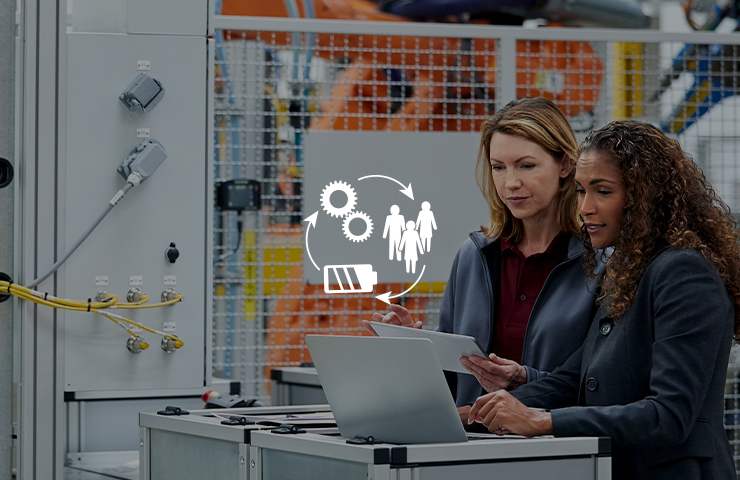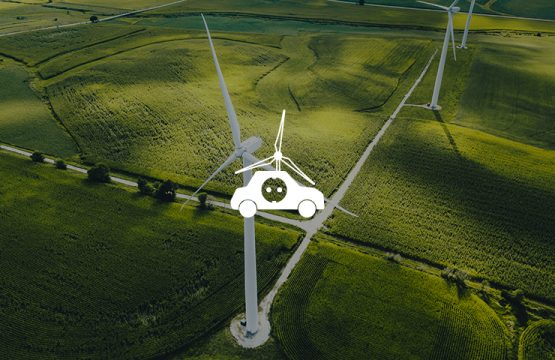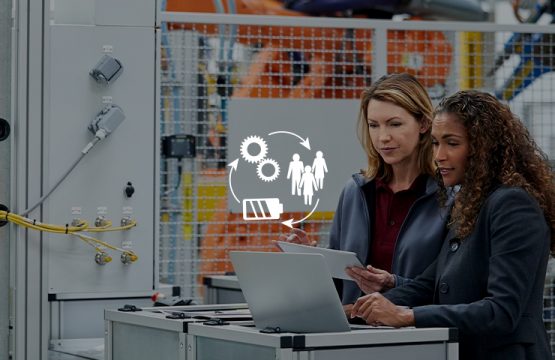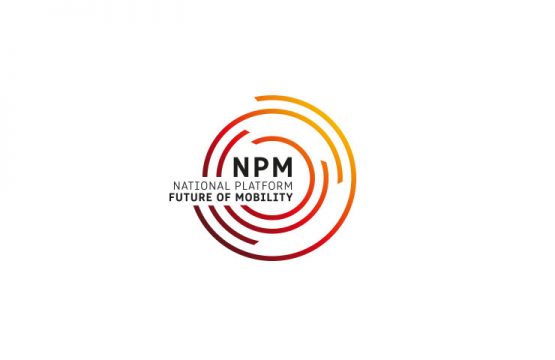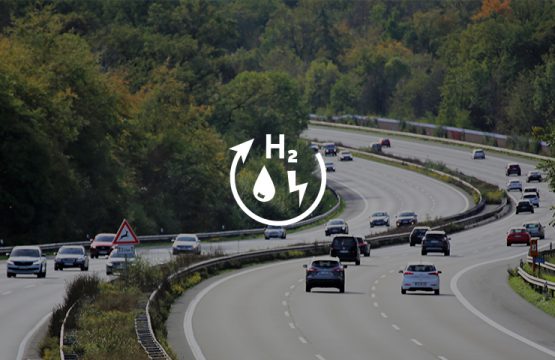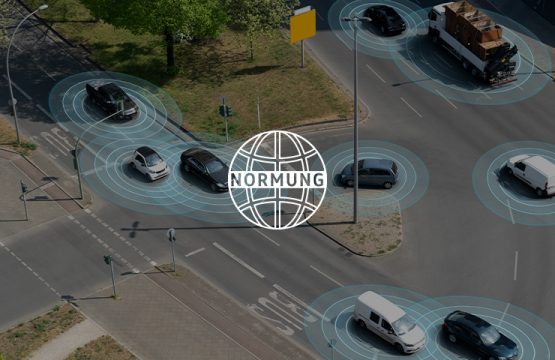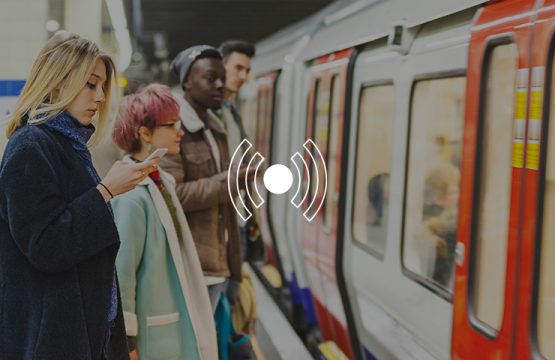The production of electric vehicles in Germany faces big challenges in terms of the supply of battery cells, the supply of critical resources for the production of lithium-ion batteries and the supply of rare earths for the production of electric machines. In order to achieve sustainability and security of supply, the value networks for these key components of electromobility need to be conceived as closed circuits from the outset.
This is the conclusion drawn by the members of focus group “Added value” within NPM’s Working Group 4 Securing Germany as a place for mobility, production, battery cell production, primary materials and recycling, training and qualification. The members produced two new reports in which they examine battery recycling as a value network and the framework conditions for adding value in the production of electric machines in Germany. The reports also highlight the opportunities and challenges in these areas.
Qualitative examination of the value chain around battery recycling
Based on last year‘s analysis of the action points for developing battery cell production, the new report presented by WG 4 now shifts its focus onto recycling of vehicle batteries. The recycling process consists of the following steps: return, dismantling, resource recovery and reuse.
The qualitative expert analysis showed that Germany and Europe still need to catch up at various points in the battery recycling process if they are to hold their own internationally. This applies particularly to battery return and partially to battery dismantling. In terms of resource recovery and reuse, on the other hand, European players are at least on a par with international competition. In order to secure a sustainable and competitive recovery and reuse of battery materials at scale or to reuse battery components in a meaningful manner, recycling plants need to be expanded and automated today. In the framework of international cooperation, politics, industry and academia need to inter alia continue to implement comprehensive battery collection concepts, agree on new ways of dealing with battery data and set common European standards.
Position paper “Electric machine – Status Quo, outlook and needs for action within Germany‘s industry”
Apart from batteries and power electronics, the electric machine is a key component of the drive train of battery-electric, hybrid and fuel cell electric vehicles.
WG4 has been looking at the conditions for the production of electric machines in Germany and has identified the need for a major effort in closing the value circuit of electric machines.
On the plus side, the experts concluded that large parts of the well-developed network of the German automotive industry with established partnerships and optimised supply chains can be continued to be used for the manufacture of electric machines.
But steps need to be taken particularly to reduce dependency on China when it comes to rare earths for permanent magnets and to catch up in the area of research and development. Furthermore, a holistic recycling concept is necessary which promotes the use of secondary resources from electric machines. We need consistent standards and rules as well as appropriate means of certification for recycled materials across Europe. Existing plants for recycling rare earths from electric machines are to be expanded and the development of innovative recycling processes is to be intensified through targeted economic and academic support. It is imperative to give timely specialist training to employees to be able to cope with future tasks in recycling, especially in the area of permanent magnets.
Both papers are now available to download on the NPM website: www.plattform-zukunft-mobilitaet.de (in German).
About NPM – National Platform Future of Mobility
The National Platform Future of Mobility brings together experts in the fields of politics, the private sector, associations, research institutes and NGOs to develop visions for sustainable, environment- and climate-friendly, affordable and competitive mobility in Germany. Presided by Prof. Dr. Henning Kagermann, six working groups develop intermodal guidance to politicians, businesses and society in a technologically-neutral way.
Contact:
Alexandra Huß
Communication advisor
Office of the Chairman of National Platform Future of Mobility
huss@acatech.de
+49 (0)30 / 206 30 96 86
+49 (0)160 / 714 93 25
